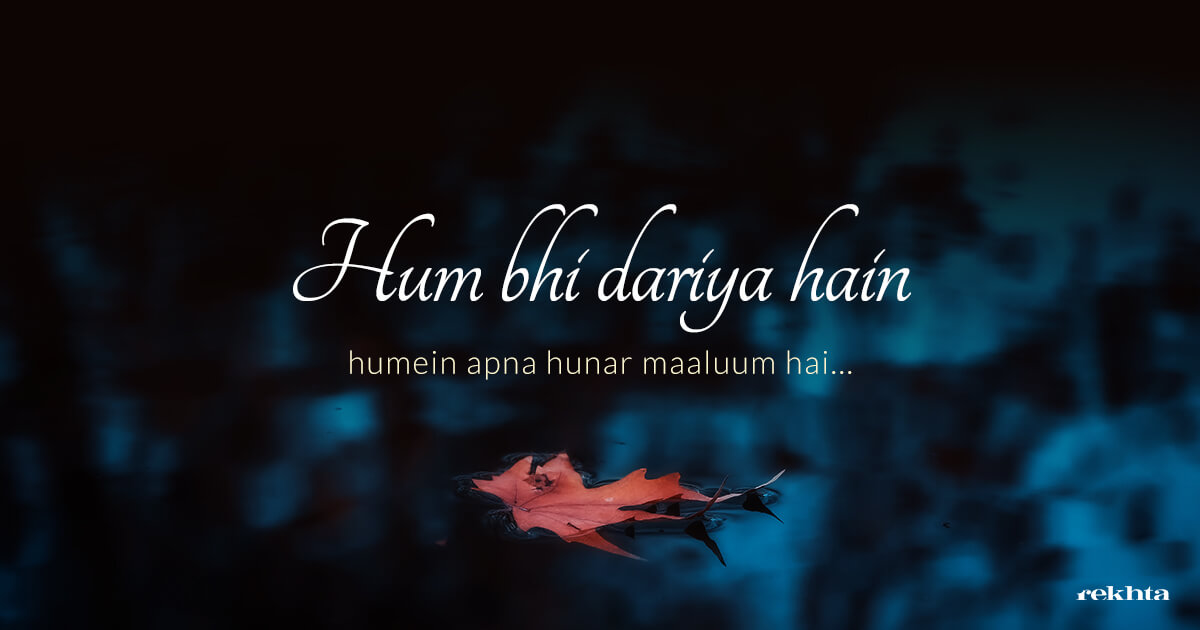
HUM BHI DARIYA HAIN HUMEIN APNA HUNAR MAALUUM HAI
Five prominent Feminist writers in Urdu
In the latter half of twentieth century, the world was hit by a Feminist storm; and rightly so. The female voices rose to break free of the four-walls behind which they had always remained unheard in a strongly patriarchal society. We mention here some names and their works that championed the cause of Feminism in Urdu literature.
FEHMIDA RIAZ (1946-2018)
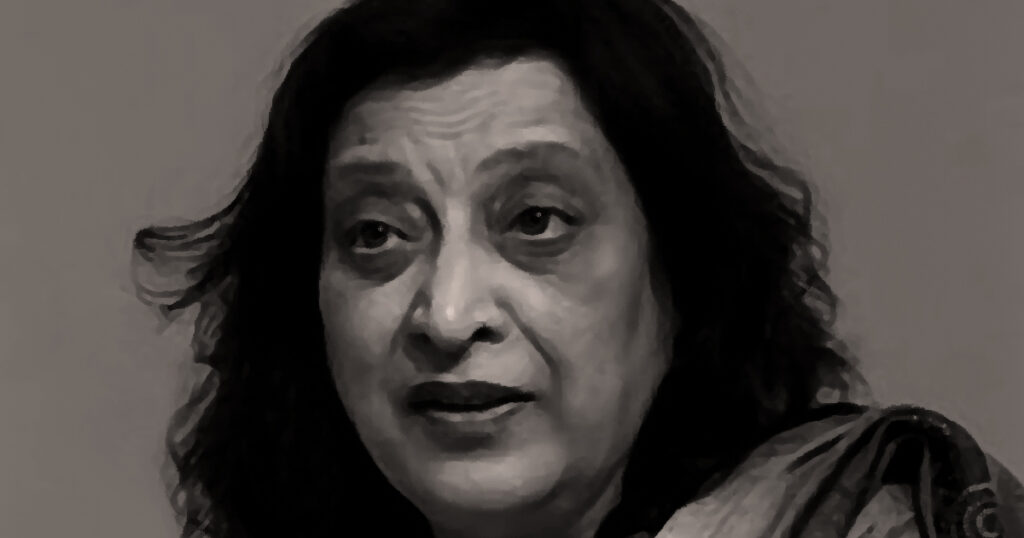
The author and activist who wrote extensively and strongly over gender inequality, men and women struggling against the imposed morality of the bourgeois class and class conflict. She strongly believed in freedom of expression. Her works express female sentiments without any reluctance or discomfort. She had to face several social challenges for using erotica and sensuality in ‘Badan Dareeda’, a collection of her verse. Her magazine ‘Awaaz’ was banned for projecting a revolutionary vision which brought her an exile of seven years. Fahmida Riaz authored several books like Pathar ki Zaban, Godaavari, Khatt-e Marmuz, Khana e Aab O Gil, Dhoop, Badan Darida, Karachi, Adhoora Aadmi etc.
Ek zan-e-KHana-ba-dosh
tum ne dekhi hai kabhi ek zan-e-khana-ba-dosh
jis ke kheme se pare raat ki taareki mein
gursana bhediye ghurrate hain
duur se aati hai jab us ki lahu ki ḳhushbu
sansanati hain darindon ki hansi
aur danton men kasak hoti hai
ki karen us ka badan sad-para
apne ḳheme men simaT kar aurat
raat aankhon mein bita deti hai
kabhi karti hai alaao raushan
bhediye duur bhagane ke liye
kabhi karti hai khayal
tez nukila jo auzar kahin mil jaae
to bana le hathiyaar
us ke kheme mein bhala kya hoga
toote phoote hue bartan do-chaar
dil ke bahlane ko shayad ye khayal aate hain
us ko maaloom hai shayad na sahar ho paae
sote bachchon pe jamae nazren
kaan aahat pe dhare baithi hai
haan dhyaan us ka jo bat jaae kabhi
gungunati hai koi bisra giit
kisi banjare ka
PARVEEN SHAKIR (1952-1994)
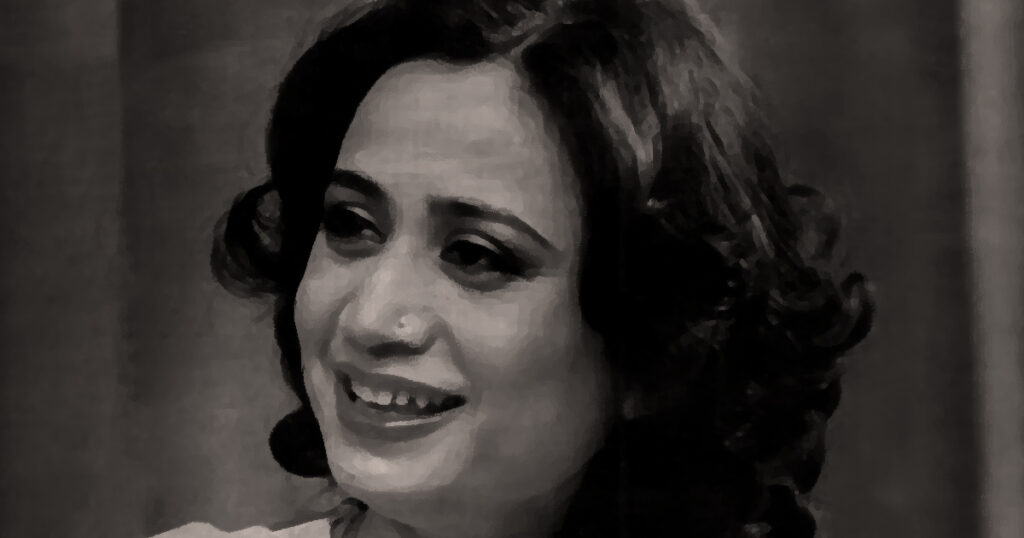
Starting at a very early age, Parveen Shakir managed to establish herself in Urdu literature like almost no other female ghazal poet. In her poetry, love and feminism are the most prominent amongst the various subjects she wrote on. Maintaining the classical fervor of Urdu Ghazal, she was the first poet who started using ‘feminine syntax’ in her poetry. Her free verses/nazms are very sharp in targeting at the ills of society and bold in thrashing the patriarchal structure. While the classicism in her ghazals is a luminous display of her excellent craftsmanship, the thunderous quietude in her nazms is the roar of her identity as a woman. Let’s hear:
Nick-name
tum mujh ko gudiya kahte ho
theek hi kahte ho!
khelne vaale sab hathon ko main gudiya hi lagti huun
jo pahna do mujh pe sajega
mera koi rang nahin
jis bachche ke haath thama do
meri kisi se jang nahin
sochti jagti aanhken meri
jab chaahe binaai le lo
kuuk bharo aur baaten sun lo
ya meri goyaai le lo
maang bharo sindoor lagao
pyaar karo aankhon men basaao
aur phir jab dil bhar jaae to
dil se uthaa ke taaq pe rakh do
tum mujh ko gudiya kahte ho
theek hi kahte ho!
AZRA ABBAS
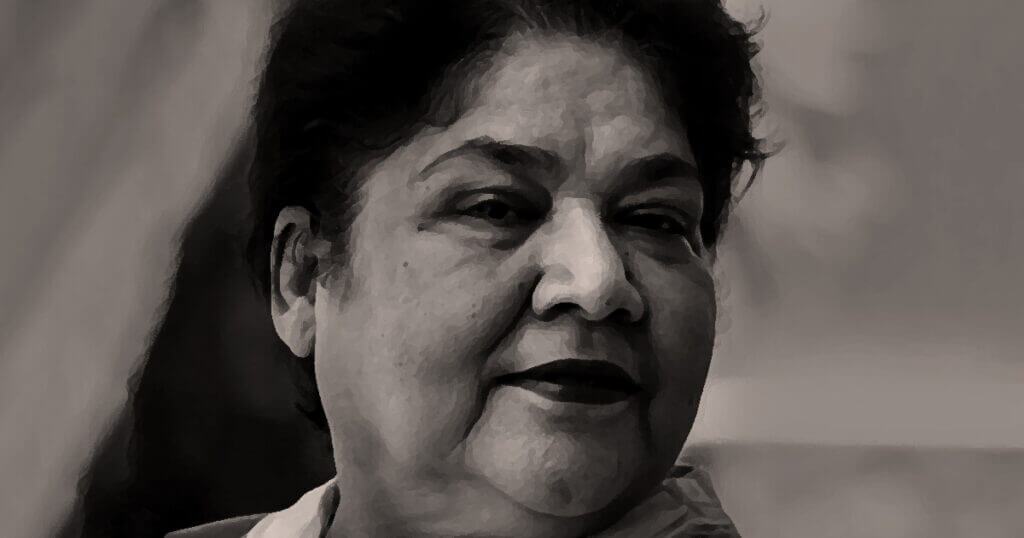
Poet and fiction writer, Azra Abbas is one of the most prominent women poets writing in Urdu. She was born in Karachi and obtained a master’s degree in Urdu from Karachi University itself. She wrote a long, feminist, stream-of-consciousness prose poem- ‘Neend ki Masaafaten’ which was published in 1981. She is one of the contemporary champions of the gender-inequality cause apparent in the five published volumes of her poetry and a memoir.
Hath khol diye jaen
mere haath khol diye jaaen
to main
is duniya ki divaaron ko
apne khwaabon ki lakiron se
siyah kar duun
aur qahr ki baarish barsaaun
aur is duniya ko apni hatheli par rakh kar
masal duun
mera daaman Khwabon ke andhere men
phailaa hua hai
mere Khwab phaansi par chadhaa diye gae
mera bachcha mere pet se chiin liya gaya
mera ghar qahr-khanon ke astabal ke liye
khol diya gaya
mujhe be-zin ghode par
andhere maidanon men utaar diya gaya hai
meri zanjir ka sira kis ke paas hai?
qayamat ke shor se pahle
main apni dhajjiyon ko samet luun
apne bachchon ko aakhiri baar ghiza faraham kar duun
aur zahr ka piyala pi luun
meri zanjir khol di jaae
is ka sira kis ke haath men hai?
KISHWAR NAHEED
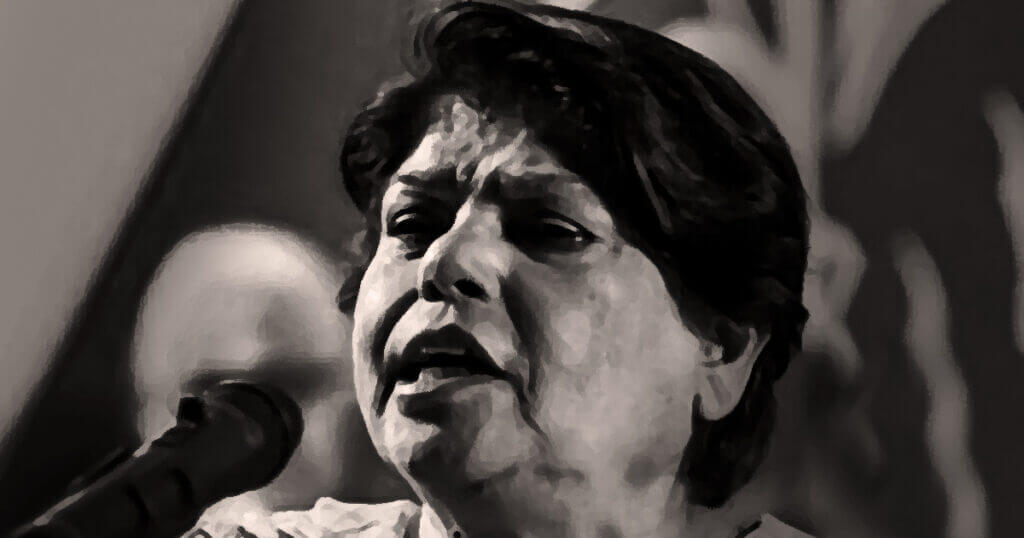
Kishwar Naheed is widely acclaimed for her fierce and uncompromising poetic expression against extremism, violence and atrocities faced by women in the male-dominated society. In her compositions, she celebrates the universal human struggle for equality, justice and freedom. She is also a proponent of peace and advocates global political order. Her voice has gained in gravity and determination over the period of time.
Hum gunah-gaar aurate.n hain
ye ham gunahgar aurten hain
jo ahl-e-jubba ki tamkanat se na raub khaen
na jaan bechen
na sar jhukaaen
na haath joden
ye ham gunahgar aurten hain
ki jin ke jismon ki fasl bechen jo log
vo sarfaraz thahren
niyabat-e-imtiyaz thahren
vo davar-e-ahl-e-saz thahren
ye ham gunahgar aurten hain
ki sach ka parcham utha ke niklen
to jhuuT se shahrahen ati mile hain
har ek dahliz pe sazaon ki dastanen rakhi mile hain
jo bol sakti thiin vo zabanen kaTi mile hain
ye ham gunahgar aurten hain
ki ab taaqub men raat bhi aae
to ye aankhen nahin bujhengi
ki ab jo deewar gir chuki hai
use uthane ki zid na karna!
ye ham gunahgar aurten hain
jo ahl-e-jubba ki tamkanat se na raub khaaen
na jaan bechen
na sar jhukaaen na haath joden!
ISMAT CHUGHTAI (1915-1991)
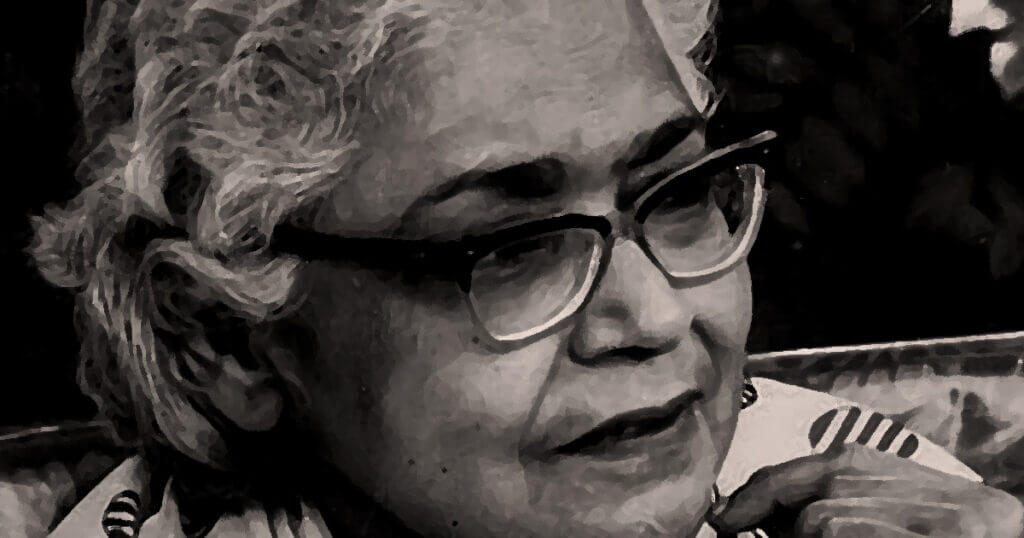
Famously known as the ‘Great Dame’ of Urdu literature, Ismat Chughtai was an Indian Urdu novelist, short story writer and filmmaker. She wrote extensively, exploring the themes of female sexuality and femininity, and became one of the grandest names in Urdu prose. Many of her works including Lihaaf were banned in South Asia due to resistance by conservatives. Here is an extract from her short story ‘Lihaaf’ depicting the life of ‘ Begum Jaan’, a neglected wife in ‘feudal Indian society’.
NEWSLETTER
Enter your email address to follow this blog and receive notification of new posts.




